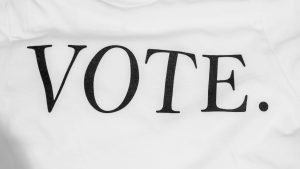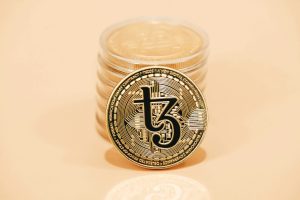NFT Legal Pitfalls: Copyright and Ownership Disputes on the Rise
With the rise of non-fungible tokens (NFTs) in the digital world, a new wave of legal concerns has emerged. The ability to uniquely identify digital assets and establish ownership through blockchain technology has opened up a world of possibilities for creators and buyers. However, this new digital frontier also brings with it a host of legal pitfalls, particularly in regards to copyright and ownership disputes. In this article, we will explore the current state of NFT legalities and the rise of these legal pitfalls, as well as the potential impact on the future of NFTs and their creators.
The NFT Craze: A Brief Overview of the Market
In recent years, NFTs have exploded in popularity, with some works selling for millions of dollars. NFTs can take many forms, such as digital art, music, videos, and even tweets. Essentially, an NFT is a unique digital asset that is registered and verified on the blockchain, making it one-of-a-kind and easily verifiable. This has led to a feeding frenzy among collectors, investors, and creators alike, with everyone eager to get their hands on the next big thing.
The Grey Area of Copyright and Ownership in NFTs
While the concept of owning a unique digital asset is appealing, it also brings up questions about copyright and ownership. In the traditional art world, the creator holds the copyright to their work, and they can choose to sell or license it as they see fit. However, in the world of NFTs, ownership and copyright are not as clear-cut.
Issues with Copyright in NFTs
In terms of copyright, NFTs face a unique dilemma. While the digital asset itself may be one-of-a-kind, the digital files that make up the asset can be easily duplicated. This means that while the buyer may own the verified and registered NFT, they do not necessarily own the copyright to the underlying digital files. This can lead to legal disputes between the creator and the NFT buyer, as well as potential for copyright infringement if the buyer decides to sell, reproduce, or display the NFT without the creator’s permission.
Ownership Disputes: From Creators to Platforms
In addition to copyright issues, NFTs also raise concerns about ownership. With NFTs being bought and sold on various platforms, there is a question of who ultimately owns the digital asset. Is it the creator who initially minted the NFT, or is it the platform through which the NFT was sold? This is a prime area for potential legal disputes, as both parties may lay claim to the ownership of the NFT, and it may not be clear who has the legal right to transfer ownership.
The Impact of Legal Pitfalls on the Future of NFTs
The ambiguity surrounding copyright and ownership in the world of NFTs has raised concerns about the future of this digital market. As more and more NFTs are created and sold, it is likely that we will see an increase in legal disputes, both between buyers and creators and between creators and platforms. This could potentially hinder the growth and popularity of NFTs, as creators may be hesitant to release their work into a market that lacks clear legal boundaries and protections.
Possible Solutions to NFT Legal Pitfalls
So, what can be done to address these legal pitfalls and ensure the longevity of NFTs? One solution could be the implementation of smart contracts, which would outline the ownership and copyright terms for each NFT. Additionally, clearer guidelines and regulations from governing bodies could help establish legal boundaries for the NFT market.
The Importance of Proper Due Diligence
Ultimately, to avoid falling into legal pitfalls in the world of NFTs, both buyers and creators must exercise proper due diligence. Buyers should thoroughly research the copyright and ownership rights of the NFT they are interested in before making a purchase, and creators should ensure that all necessary copyrights and releases are secured before minting their NFTs. Proper legal advice and contracts can also help protect both parties involved in NFT transactions.
Conclusion
NFTs may be the new frontier in the digital world, but they are not without their legal concerns. With the rise of copyright and ownership disputes, it is clear that more needs to be done to establish clear legal guidelines and protections for the NFT market. Until then, it is up to creators, buyers, and platforms to tread carefully and ensure that proper due diligence is exercised to avoid potential legal pitfalls and protect the future of NFTs.











